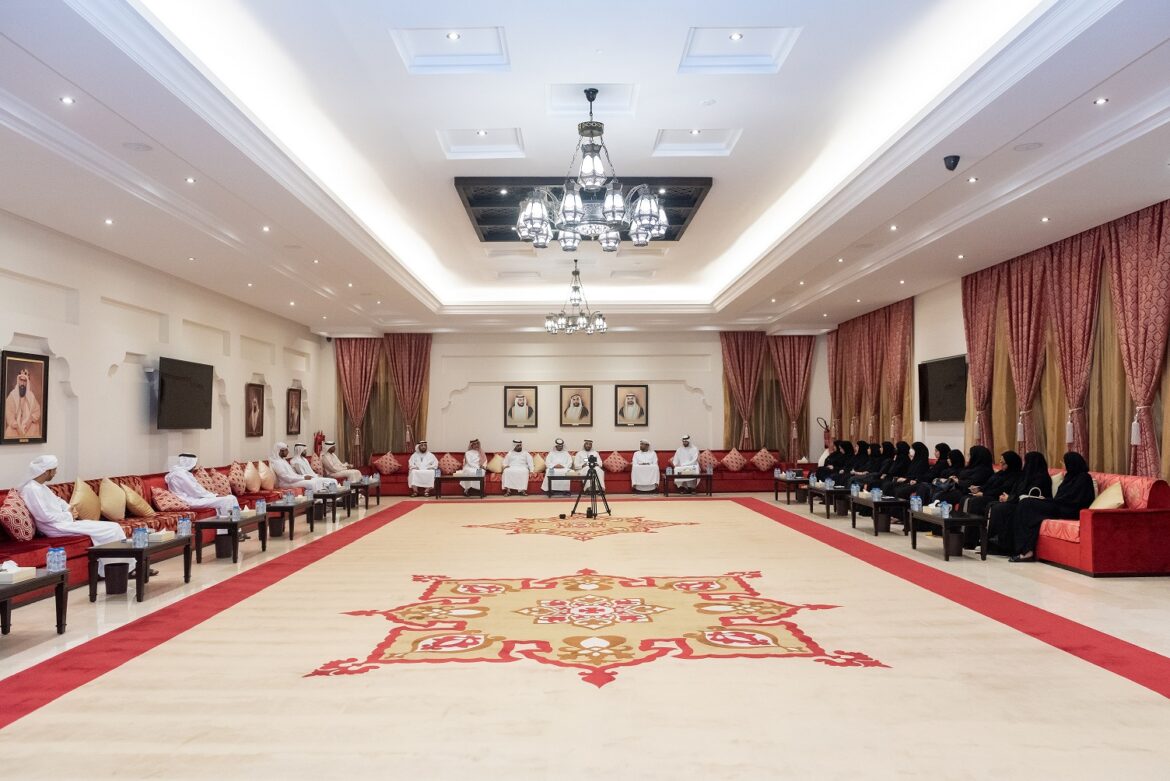Abu Dhabi, UAE – 27 September 2023 – As part of its ongoing efforts to promote political participation and raise awareness of the importance of participating in the 2023 Federal National Council (FNC) elections, the Ministry of State for Federal Council Affairs (MFNCA) organised a lecture titled ‘The Role of the Community in the Federal National Council Elections’.
Held at the Rabdan Majlis in the Emirate of Abu Dhabi in collaboration with Majalis Abu Dhabi at the Citizens and Community Affairs Office of the Presidential Court, the lecture forms part of the sixth session of the Neighbourhood Councils initiative.
Dr. Mohamed Butti Al Shamsi delivered the lecture, which shed light on voters’ rights and obligations in the 2023 FNC elections. The lecturer explained that voters have several rights, including the right to cast their votes in the elections, choose their preferred candidates freely, and not be subjected to election propaganda deemed improper in terms of style, timing, or location. Voters also have the right not to be influenced in their choices through material or non-material gifts, in addition to their right to receive assistance from the head of the Voting Centre Committee or one of its members if they cannot vote on their own.
Moreover, the lecture outlined a set of obligations that voters must fulfil, including not wasting their votes by ensuring they cast their ballot either through the remote (online) voting system using authorised smart applications, or through the electronic voting system at authorised voting centres in the early voting period or on the main election day. It is essential that voters elect their representative in the FNC objectively and wisely, avoiding personal biases; they must also refrain from actions that disrupt the electoral process, violate election regulations, or prohibit other voters from casting their ballots freely. Furthermore, voters are cautioned not to engage in election propaganda for any candidate inside the voting centre or anywhere in its vicinity; they are also required to refrain from photographing individuals or the devices in the voting centre.
Voters must register with the national digital identity and signature solution UAE PASS to be able to vote, be it remotely or by using the electronic voting systems at the voting centres. If not registered for UAE PASS, voters must bring their Emirates ID issued by the Federal Authority for Identity and Citizenship and Customs, and Port Security to the voting centre. They must also refrain from using anything that could influence others to vote for a specific candidate, and treat Voting Centre Committee members with respect, following their instructions regarding the system inside the voting centre and in its vicinity. Finally, voters should exit the voting centre immediately after casting their ballot, unless they are candidates or representatives of candidates.
The lecturer went on to emphasise that each voter has only one ballot and is not allowed to vote for more than one candidate, regardless of the number of candidates to be elected in their respective emirate – and this applies to online voting or in-person at the voting centres.
At the conclusion of the lecture, Dr. Mohamed Butti Al Shamsi highlighted the legislative and oversight powers exercised by the Federal National Council, which include discussing constitutional amendments, federal draft laws, draft annual state budgets and final accounts. The FNC also expresses opinions on international treaties and agreements referred to it by decision from His Highness President of the UAE, directing questions to ministers, discussing public issues, and addressing complaints.








